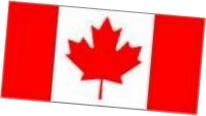 |
| New Conservative |
 |
| Stanley T. Smiths' |
 |
| Join For FREE |
| A privately run Free publication to inform and unite the right |
| Toronto, Ontario |
 |
| Todays Top Stories |

|
| CANADIAN LINKS |
| Did you enjoy or find these articles informative? Would you like to join our group? Would you like to receive our e-mail daily update? Just post a message and we will get back to you. All information will be treated as confidential. |
| International |
| Election Breakdown |
| New Conservative |
| The |
| Liberals ditch promise and vote against independent ethics counsellor JIM BROWN --Canadian Press--National Post Feb.14, 2001 We are going to vote against the motion because it's not put forward to bring about any positive change in the rules," said Deputy Prime Minister Herb Gray. OTTAWA (CP) - The Liberals shrugged off an old campaign promise Tuesday, voting down an effort to make the federal ethics counsellor report to Parliament as a whole rather than to Prime Minister Jean Chretien. By a vote of 145-123, the government handily turned back the motion sponsored by the Canadian Alliance and supported by the other three opposition parties. Two Ontario Liberals - Ivan Grose of Oshawa and Paul Steckle of Huron-Bruce - broke ranks to vote with the opposition. Both said they did not expect to face disciplinary action, but Liberal whip Marlene Catterall was silent on what course she will take. Four other Liberals abstained - Roger Gallaway, Clifford Lincoln, Rose-Marie Ur and Brenda Chamberlain. The most notable of those was Chamberlain, who lost her job as chair of the Ontario caucus last week. Her colleagues voted her out after she became too vociferous in her support of Finance Minister Paul Martin's backroom campaign to succeed Chretien. The Alliance motion, though nominally drafted by the opposition, was taken verbatim from the Liberal red book of campaign promises for the 1993 election. Once in power, Chretien appointed Howard Wilson, a career bureaucrat, to oversee a conflict-of-interest code for his cabinet. But he decided the ethics counsellor should report privately to him, rather than publicly to Parliament as previously promised. With Chretien now under attack over federal grants and loans to businesses in his riding, critics charge that Wilson doesn't have the independence needed to hold his boss to account. Alliance Leader Stockwell Day mocked the Liberals, accusing them of missing a chance to bring "democracy and freedom to the House of Commons" by finally keeping the eight-year-old platform promise. "What is it about this motion that the prime minister thinks will hurt the country?" asked Day. Conservative Leader Joe Clark was equally scathing. "If Liberal MPs can't support the Liberal platform, that says a lot about their commitment," said Clark. "It is the height of hypocrisy for them to back away from it." Steckle, a maverick who has bucked the party line on issues from gun control to gay rights, said he couldn't bring himself to repudiate the 1993 promise on the ethics counsellor. "For the most part, I think government should live by its policies," he said. "When we seek election there are certain things we have agreed to as a party." Grose took a similar line and maintained that his stand reflected the wishes of his constituents. "I voted for what I thought my people wanted," he said. "It's something that we promised to do, and I see no reason why we shouldn't do it." Liberal sources say the four abstainers shared the views of Grose and Steckle, but they decided at the last minute to sit out the vote rather than break openly with the government. In theory, members who break solidarity can face sanctions ranging from loss of choice committee assignments and foreign trips to outright expulsion from caucus. But the party hierarchy has often turned a blind eye to past incidents to preserve peace in the ranks. Cabinet members, taking their cue from Chretien, were solidly opposed to the Alliance motion. That included Martin, who co-authored the 1993 red book. Asked how he could vote against his own words from the platform, the finance minister feigned sudden deafness. "I can't hear you," he joked as he walked away from journalists. Backbenchers who toed the party line denounced the opposition motion as a parliamentary trick, deliberately aimed at mousetrapping the government. "This is political posturing by the Alliance," said Liberal Dan McTeague, who has often been at odds with his own party and ran unsuccessfully for Commons Speaker in a bid to reform the House. "Anything they (Alliance MPs) do is strictly to make cheap political points. Their strategy is to embarrass the government, not to improve the office of the ethics counsellor." Stephen Owen, a former B.C. ombudsman who favours an independent ethics czar in principle, refused all the same to break party ranks. "I didn't come to Ottawa to vote against the government," he said. "If I had, I would have run for the Canadian Alliance." Chretien, who was in China on a Team Canada trade mission, has repeatedly insisted since taking office that the ethics counsellor must answer directly to him. Wilson and other senior bureaucrats have upheld that contention. In fact, they were the ones who advised Chretien to abandon his red book promise about reporting to Parliament. "It's a very important constitutional point," Wilson said. "Under our system, it's the prime minister who must stand accountable for his government." He acknowledged, however, that most provinces take a different view. They have their ethics watchdogs report to the legislature rather than the premier. Debate has sharpened with allegations that Chretien improperly lobbied for a loan from the federally owned Business Development Bank of Canada to Yvon Duhaime, a hotel owner in his riding. Chretien was part-owner of the hotel when he was in opposition. He sold the interest before taking power, but encountered problems when he tried to dispose of his shares in an adjoining golf course. That deal bogged down in legal wrangling and was not completed until 1999. Critics say the economics of the hotel and the golf course were linked, giving Chretien a personal financial stake in government aid to Duhaime. Wilson ruled the prime minister did not violate existing conflict-of-interest rules. But he has proposed tighter guidelines in future for dealings between cabinet ministers and Crown corporations like the business development bank. |